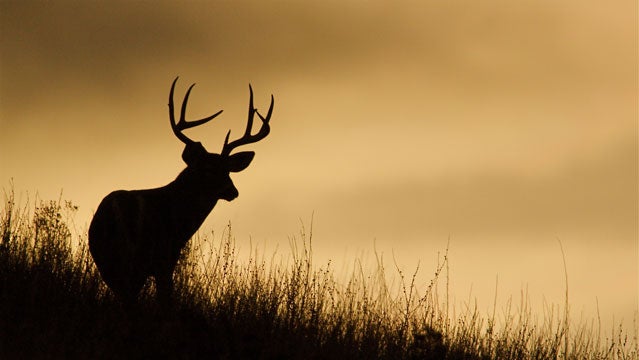First, pay attention to state-issued warnings, which are usually made public during spring and summer when plague outbreak is high. Check with your local DNR or Game & Fish Office to be sure. Here in Arizona the peak season is May-June, but keep in mind that fleas are found on most warm-blooded mammals throughout the year. It’s not just small game that you have to worry about either. A few years back, there was a wildlife biologist who died from the plague he caught from fleas that came off of a dead cougar.
Tony Nester
 Tony Nester
Tony NesterPlague is not something that you can boil or cook out of the meat. Discard or bury the carcass if uncertain. Remember that if there’s a doubt, don’t eat the meat.
External signs I look for when hunting and field-dressing an animal:
– The coat/fur should be thick and healthy, not mangy and thinned out.
– The animal should look healthy and robust, not gaunt or sickly.
– The eyes should be clear and not have any discharge present.
– Listen to your gut. Are your instincts telling you something’s amiss with this animal’s appearance?
When I skin the animal, I always inspect the liver after field-dressing to see if it looks healthy. It should be a solid reddish-brown color. If the liver has white spots then the meat is tainted and the critter should not be eaten. This is often due to tularemia, not plague.
If you have been exposed to an animal with plague or recently field-dressed wild game and within 2-5 days develop swollen lymph nodes, fever, deep muscle aches, and painful lumps, see your doctor immediately.
Wear disposable latex gloves while skinning and cleaning to avoid disease, especially if you have any cuts or scrapes on your hands.
I believe plague and other disease vectors are the reason that many native hunters of old tossed the animal carcass on the fire for a few minutes to burn off the fleas before skinning and cleaning.
Lastly, I would highly recommend seeking out someone in your family or community who can show you how to skillfully field dress and clean wild game as there’s no substitute for hands-on training. With this, you will gain an eye for the details listed above and what to look for when cleaning wild game.


